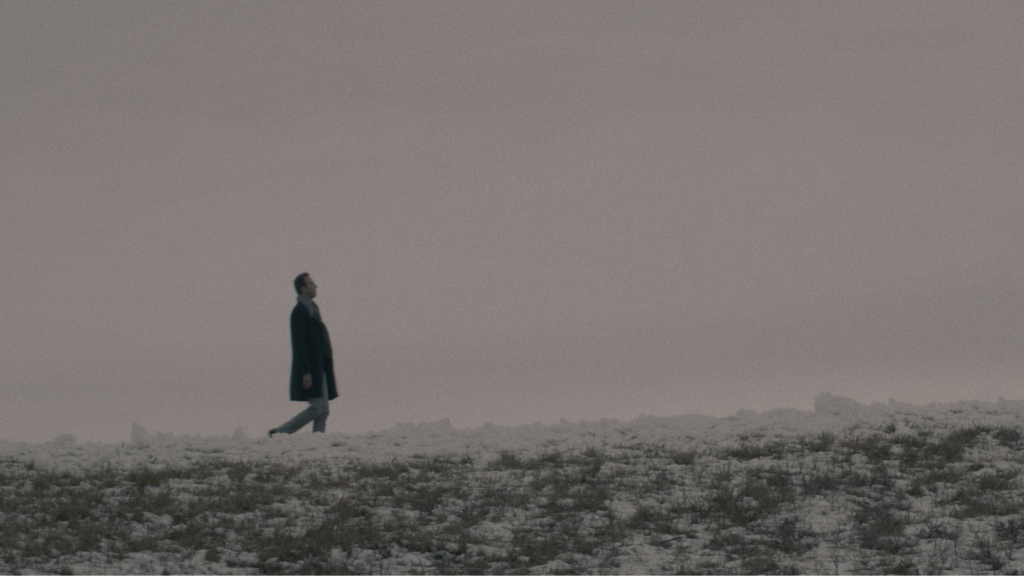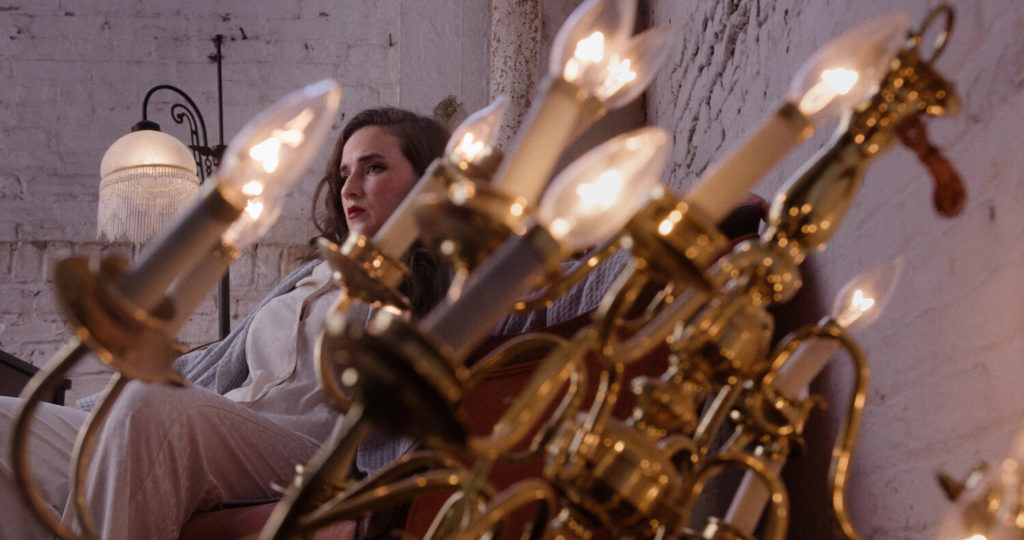VIEWPOINTS – The lieder dreamily engages contemporary existential matters in THE WANDERING & WE NEED TO TALK
- By drediman
- April 23, 2021
- No Comments
This week, I encountered two fascinating productions that use the lieder (i.e., nineteenth century art songs, typically set to poetry) – or the form of the lieder – to dreamily engage in contemporary existential matters. As always, here are my thoughts.

THE WANDERING
Produced by Max Sauberman
On-demand through May 15
Classical music steps into the contemporary world, albeit by way of the subconscious, in the gorgeously packaged and designed The Wandering (RECOMMENEDED), an ambitious multimedia concoction created by Calista Small and Jeremy Weiss. Set to the emotionally charged collection of lieder by Franz Schubert – soulfully sung by Mr. Weiss, as accompanied on piano Marika Yasuda – the remote but highly interactive experience plunges audiences into a sensory dreamscape awash in melancholy, confusion, and awe. To get the full experience, active participation is recommended (via an immersive kit that’s mailed to you), whether it be navigating an elegant web-based interface, immersing in a couple of short films, toying with 3D images on your smart phone, sharing photos and thoughts with fellow audience members, or even face-painting (!). Even though these disparate pieces don’t quite hold together cohesively, several elements did capture my imagination. Thankfully, the most successful aspect is the centerpiece of the project, which are the four thematically segregated art films (courtesy of filmmaker Lara Panah-Izadi) around which the other activities are organized. Stunningly shot and worthy of the surreal, intoxicating worlds of David Lynch, these “Alice in Wonderland”-esque escapades stylishly transpose the romantic yearning and desolate mystery of Schubert’s compositions onto the anxieties of the contemporary world, particularly with reference to the queer experience. Whatever its flaws, The Wandering provides an immersive and interactive alternative to passively streaming content, as well as a radically unique way to consume and reconsider classical music.

WE NEED TO TALK
Opera Philadelphia
On-demand via the Opera Philadelphia Channel
Then we have Pulitzer Prize winner Caroline Shaw’s We Need to Talk (RECOMMENDED), a new short opera film that recently dropped on the Opera Philadelphia Channel. Like the cinematic component of The Wandering, this 10-minute work attempts to come to terms with the nagging demons lurking within the contemporary human psyche. But instead of being filtered through a queer lens, Ms. Shaw’s piece engages a specifically female perspective. Set to the opaque, pointed poetry of Anne Carson, Ms. Shaw unleashes a sonic and musical equivalent that’s jarring upon first listen. Patched together using layers of vintage recordings, voice (sung and spoken), classical instruments (strings and keys), and electronic enhancements (looping, beats), the adventurously orchestrated tapestry reflects the unruliness of the subconscious. The composition’s organic progression features shimmering passages that are erratically and sharply punctuated by episodic shifts in tone in color. Taken as a whole, the highly engineered score boldly breaks from the conventions of so-called classical music and functions as a sort of modern-day equivalent to the nineteenth century lieder. The film has been meticulously directed by Maureen Towey, whose surreal and slightly menacing visual flourishes (including a disorienting play with time) fit hand-in-glove with Ms. Shaw’s dissonant score and Ms. Carson’s dense text. Soprano Ariadne Greif, who looks fabulous in the film, gives a brave, moody, and musically nuanced performance that grows upon each viewing. The vocal and dramatic tension she generates speaks to the turmoil and frustration of living in today’s world. Opera Philadelphia deserves high praise for continuing to commission projects that break the mold (We Need to Talk comes on the heels of another accomplished work, Angélica Negrón’s The Island We Made), especially during the pandemic.

 Copyright © 2025
Copyright © 2025
Leave a Reply